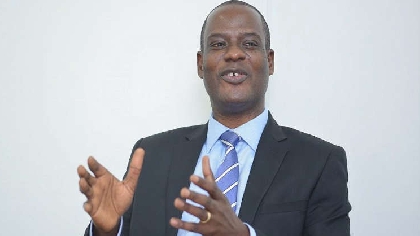
The recently inaugurated Presidential Committee on Fiscal Policy will aim at reducing the number of taxes individuals and corporations in Nigeria pay.
The chairman of the committee, Taiwo Oyedele, told Sherrif Quadry in an exclusive interview on Morning CrossFire that the goal is to streamline and simplify the tax system, reducing the number of taxes from over 60 to a single-digit figure.
"The idea is to reduce the over 60 different of taxes we have officially," he said.
"Officially, they are more than that. We want to be able to reduce that to a single digit so that across the federal government, state, and local government, you don't pay more than 10 taxes."
The intention is not to increase taxes, but rather to eliminate many of them, he emphasized.
Oyedele explained that the current situation where the federal, state, and local governments impose various taxes leads to inefficiencies and burdens on citizens.
His committee plans to make tax collection efficient and fair, redistribute the tax burden, and prevent the poorest individuals from paying excessive taxes.
He pointed out that the government aims to move away from heavy borrowing to fund public expenditure.
Last year, nearly 96 percent of the federal government's revenue went toward servicing debts, leaving little for development.
Oyedele highlighted that the plan's focus is to generate revenue internally and fund operations independently without having to borrow.
The tax reform strategy includes closing the tax gap, estimated at around N20 trillion, by ensuring those who should be paying taxes do so accurately.
Oyedele mentioned the Voluntary Asset Income Declaration Scheme launched in 2017, which revealed that 96 percent of tax-paying individuals were from lower income brackets, indicating a need for change.
The plan also includes reducing the cost of tax collection, reevaluating incentives that might no longer be effective, and carrying out cost-benefit analyses to ensure incentives are justified.
This combination of measures is expected to generate the necessary revenue without introducing new taxes.
Oyedele expressed that this comprehensive initiative will be instrumental in ending the reliance on borrowing.
The reforms will affect various sectors, including high-net-worth individuals, government sectors, and MDAs, creating a more equitable and transparent taxation system.
Additionally, Oyedele highlighted the issue of multiple taxation, particularly at the local government level.
He mentioned a lack of transparency in tax collection, with many local governments lacking records of their collections.
"People pay federal, state, and local government; There's hardly a record for local government," he said.
"In my previous role as Research Director for the Nigerian Economic Summit Group, we did a national study and we were speaking to Nigerian people, small businesses, and then to tax officers, large owners, and tax officers, we went around asking local governments how much money they collected.
"In over 90 percent of the local govt, they had no records.
"Those who had records, we found out that majority of them, the amount they said they had collected from taxes was not enough to pay the salaries of people collecting the taxes."
The tax reform plan aims to harmonize taxes at the local government level and create a template for states to follow, streamlining the process and enhancing transparency.


